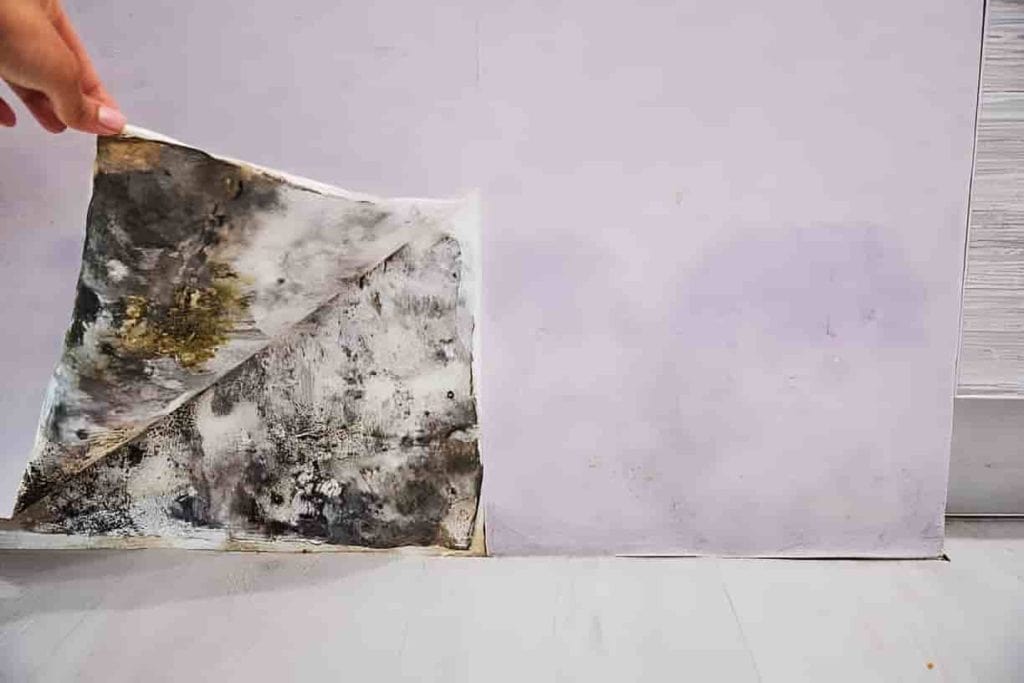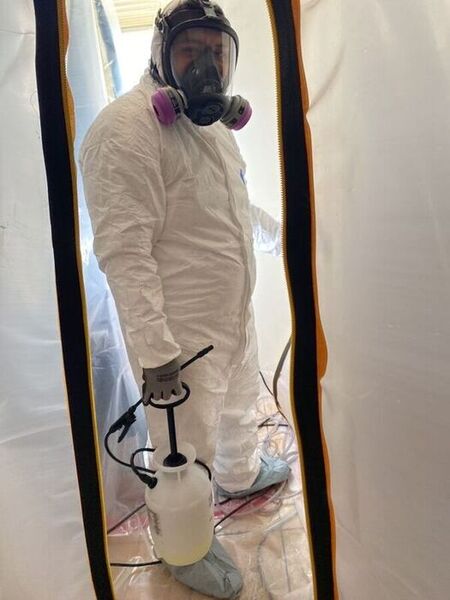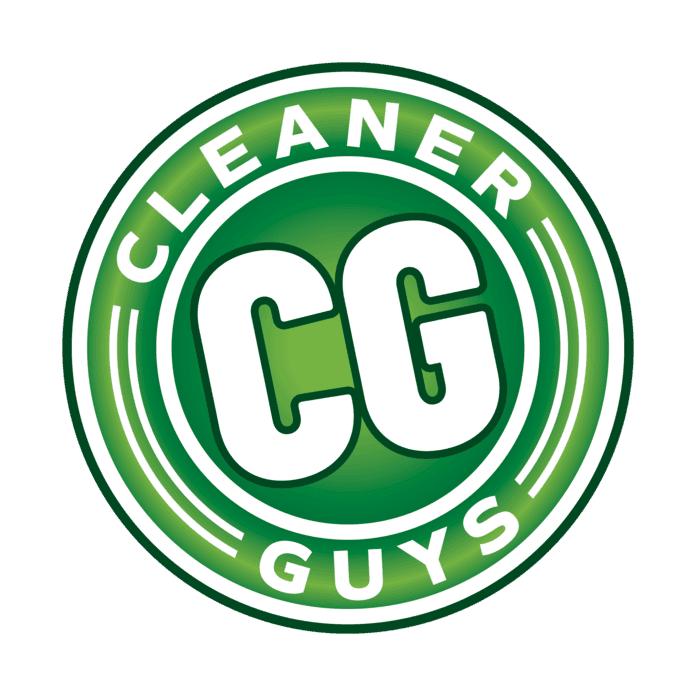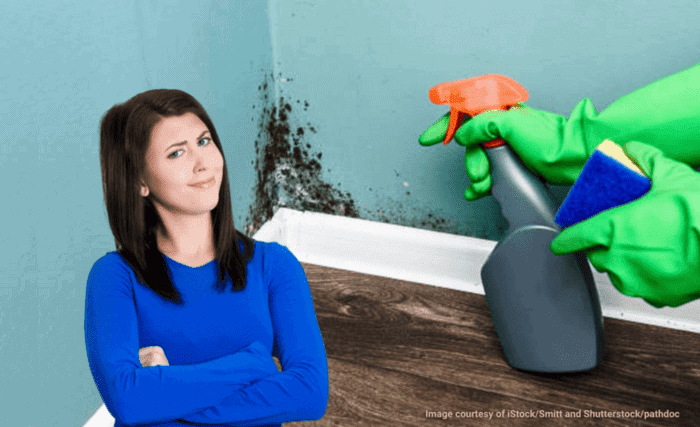So, you’ve found mold, and you want to get rid of it the fastest, easiest way possible. You turn to the internet to tell you how to do it. A lot of the top articles say that vinegar can clean mold! But they all seem to say it cleans “80% of mold”, or “only certain kinds of mold”, or some other caveat. You wonder, “So, does vinegar kill mold or not?”.
We’ve seen this scenario happen time and time again. We’re Cleaner Guys, a professional mold removal company. We’re a team of experts in all things mold, and we regularly work with homeowners who attempt to clean mold themselves with home remedies from the internet, such as vinegar. Let’s answer the question of vinegar and mold once and for all.
Table of Contents
- The Short Answer
- Why Vinegar Isn’t Effective on Mold
- Can Vinegar Kill Mildew?
- What Surfaces Can You Use Vinegar on?
- Does Vinegar Kill Mold Better than Bleach?
- What Should You Do When You Find Mold?
- How to Prevent Mold in the Future
The Short Answer
Does vinegar kill mold? The real answer is not usually. Unfortunately, everyone on the internet has opinions, but most of them don’t have decades of experience working with actual mold, like we do. You’ve probably seen health magazines, home decor magazines, and even hardware store websites touting vinegar as an effective home remedy for getting rid of mold. The only real mold experts trying to correct this seem to be us and MoldTech.
The truth is, vinegar does not kill 100% of mold in most cases. It only works on a very small number of surfaces, and only if the moldy area is very small. Even then, mold often comes back after vinegar.
So what do you do instead? Skip directly to this part of the article to find out.
Why Vinegar Isn’t Effective on Mold
Mold is difficult to clean, especially on your own, because it likes to root deeply into organic materials, like drywall and wood. We always tell our clients that however much mold you can see on the surface, there’s almost certainly more that you can’t see.
Vinegar is good at killing plant matter, that much is true. But it can rarely penetrate deeply enough to kill fungi like mold down to the root. That’s why it usually isn’t truly effective in cleaning black mold, green mold, and most kinds of common house molds.
However, we understand why it’s still commonly believed that vinegar works on mold. It does kill the mold on the surface, where you can see it. The mold appears to be gone! But vinegar doesn’t penetrate deeply enough to kill 100% of the mold. This means that some small bit of the mold will survive, and eventually, it will reappear. That’s why we don’t recommend vinegar as an effective treatment for mold.

Can Vinegar Kill Mildew?
Most information you’ve read about vinegar and mold probably mentioned that mold and mildew are the same thing. That’s both true, and not true.
Mildew is a type of mold, yes. They both belong to the same biological species, fungi. However, the subtle differences between them completely change how you can clean them! Click here to learn how to tell mildew apart from mold.
Mildew is a surface species of mold that usually grows on hard, non-porous surfaces, like plastic and tile, showers, and sinks. This means that its roots don’t penetrate deeply into the material it’s on! That means that you can successfully use vinegar to kill mildew.
How to Clean Mildew with Vinegar
- Ventilate the area first. Open doors and windows to get some fresh air moving through the room.
- Soak the mildew in vinegar. Pour some regular undiluted white vinegar into a spray bottle, and spray down the mildew thoroughly. Leave it to soak for about an hour, so that the vinegar has time to kill the mildew.
- Wear protective cleaning equipment, especially rubber gloves. Goggles and masks are optional; vinegar is not toxic, even though it smells strong.
- Wipe or scrub off the mildew until it’s gone.
What Surfaces Can You Use Vinegar On?
While vinegar is useful for killing mildew, you should be very careful about what surfaces you use undiluted vinegar on. Vinegar is a mild acid, which means it can damage some surfaces.
Does Vinegar Kill Mold on Wood?
You should not use vinegar as a cleaner on any kind of polished, varnished, stained, or “finished” wood. The acidity of the vinegar will almost certainly damage the finish of the wood. You can attempt to use it on untreated wood that you don’t mind staining, such as framing. However, as previously described, vinegar probably won’t completely kill mold on wood. The best solution is to remove the moldy wood and replace it. This is what professional mold removal companies like Cleaner Guys usually do.
Does Vinegar Kill Mold on Walls?
Vinegar is even less effective on porous surfaces like drywall. We don’t recommend you even attempt it if the mold spreads further than a 1-square-foot patch, but if the mold is smaller than that, you can try cleaning it with vinegar. Just keep in mind that it may not be effective for long.
Does Vinegar Kill Mold on Stone?
Beware vinegar if you’re trying to clean mold or mildew off any stone tile, especially marble or limestone! Vinegar can dull these surfaces permanently.
Does Vinegar Kill Mold on Fruit?
Yes! Vinegar is usually effective at killing mold on fruit. However, we would only recommend using it on new fruit, to prevent mold. Soak new fruit in water with a little vinegar, and it can help prevent mold, kill insects, and neutralize pesticides. However, if the fruit is already moldy, we don’t recommend trying to clean it with vinegar. If it grows mold, it’s probably too old to eat safely.
Does Vinegar Kill Mold Better Than Bleach?
Bleach can be effective on mold, but we do not recommend that you attempt to use it when cleaning mold yourself. Bleach is far more toxic than vinegar, and is risky to use. It’s also much harsher than vinegar, and is much more likely to damage and stain not just hard surfaces, but drywall as well.
We here at Cleaner Guys sometimes use bleach to kill mold, but professional companies like us use commercial-grade bleaches that are so strong, we have to wear respirator masks and Hazmat suits to make sure we don’t breathe it in or touch it at all. Additionally, we only use this kind of mold-killing bleach in attics, crawlspaces, and other areas that you wouldn’t see from inside your home, because it can stain badly.
When you’re trying to clean mold yourself, we highly recommend you stick with vinegar, and that you only attempt to use it on very small areas and on mildew.

What Should You Do When You Find Mold?
The EPA recommends calling a professional mold removal company if the mold you find covers more than 10 square feet of surface. However, as I said at the beginning of this article, we deal with a lot of homeowners who tried to clean an area of mold that big with vinegar or bleach. In our experience, it usually comes back, because those remedies don’t penetrate deeply enough to completely kill 100% of the mold.
Our professional recommendation is that you call a mold removal company if the mold covers more than about 1 square foot of space. Mold roots deeply into whatever surface it’s on, which is why we always say: however much mold you can see, there’s almost certainly a lot more you can’t see.
The most effective method to completely, 100% remove all mold is to remove the material it’s growing on. You simply can’t be certain it’s all gone otherwise. This requires the expertise of a mold remediation company, and should not be attempted by a layperson.
Unsure how to find a mold remediation company you can trust? Read our guide to finding a trustworthy service company next!
How to Prevent Mold in the Future
- Keep Indoor Humidity Low. We agree with the CDC’s recommendation to keep your indoor humidity ideally lower than 50%. Mold needs moisture to grow, so don’t give it any!
- Take Care of Leaks Immediately. If you live in a rental home or apartment, alert your landlord about leaks and damaged window sealings immediately, pressing them about it as necessary. If you own your home or business, it’s up to you to stay on top of any plumbing issues and leaks.
- Ventilation, ventilation, ventilation! Try to have some kind of airflow in every room. Ceiling fans, freestanding fans, and even opening a window will do. Stagnant air encourages mold growth.
- Regular Cleaning. Mold feeds on organic materials like dust and crumbs — so don’t give it any!
If you need a mold removal company near Mount Vernon WA or the surrounding counties, consider Cleaner Guys as a high-quality, well-trusted option. We boast award-winning customer service, more honest prices than the other companies, and top-notch workmanship. Give us a call today at 360-757-4300.
Disclaimer: This article is for informational purposes only. No part of this article is medical or legal advice, and may not be used as such. For all serious medical matters, consult your doctor. For all serious legal matters, consult your legal advisor. This article contains Cleaner Guys’ experience and opinions only.


